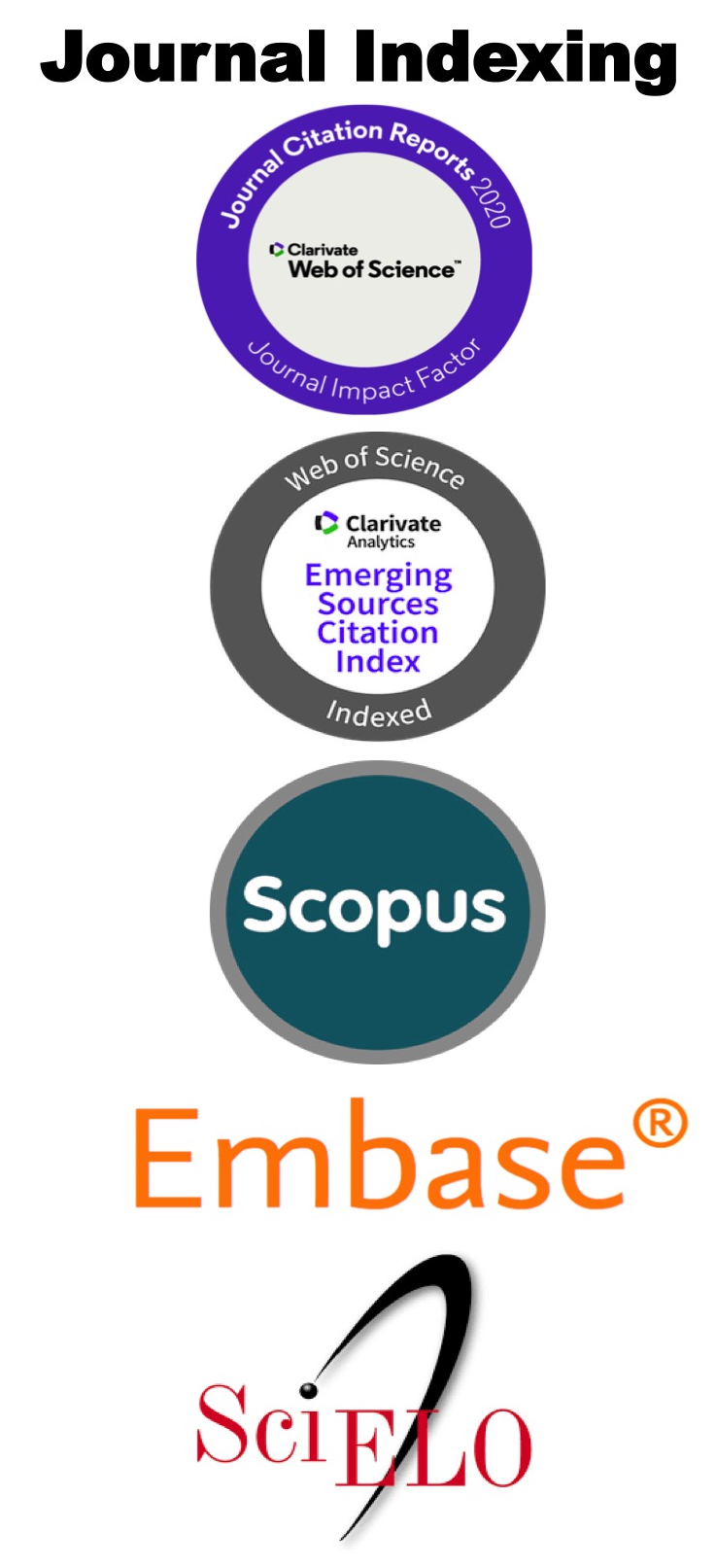Intention and Oral Health Behavior Perspective of Islamic Traditional Boarding School Students Based on Theory of Planned Behavior
Keywords:
Oral Health, Health Behavior, Health Knowledge, Attitudes, PracticeAbstract
Objective: To analyze the correlation of the students in an Islamic boarding school intention toward oral health behavior by means of the Theory of Planned Behavior (TPB) approach. Material and Methods: A cross-sectional analytic study was conducted on 153 students of an Islamic boarding school who fulfilled the criterion. Data were obtained by a questionnaire and clinical examination. Data were presented as mean and standard deviation. Results: The highest score of the variable that affects behavior recorded from both male and female respondents was Subjective Norm (57.288 ± 12.828), followed by Attitude (25.627 ± 4.144). Meanwhile, the lowest score that affects behavior was Oral Health Knowledge (3.179 ± 1.402). All study variables, according to the theory of planned behavior, such as knowledge, attitude, subjective norm, perceived behavior control, and intention had significant value to predict and assess behavior with p<0.05. Conclusion: Attitude, subjective norms, perceived behavioral control, and oral health knowledge in Private Boarding School’s Santris influence the intention to improve oral hygiene behavior.
References
Sari MME. The role of learning management of Islamic boarding school (Pesantren) in improvement of their students religious tolerance in West Java - Indonesia. Int J Innov Appl Stud 2017; 19(1):24-32.
Departemen Agama RI. Daftar Jumlah Santri dan Nama Kyai Tahun 2008/2009. Available from: http://pendis.kemenag.go.id/file/dokumen/santri-kyai-pontren-81-82-91-92.pdf. [Accessed on June 14, 2019]. [In Indonesian]
Departemen Agama RI. Analisis dan Interpretasi Data pada Pondok Pesantren, Madrasah Diniyah (Madin), Taman Pendidikan Quran (TPQ) Tahun Pelajaran 2011-2012. Available from: http://pendis.kemenag.go.id/file/dokumen/pontrenanalisis.pdf. [Accessed Sep 10, 2018]. [In Indonesian]
Zakaria GAN. Pondok pesantren: changes and its future pondok pesantren. J Islam Arab Educ 2010; 2(2):45-52.
Baharun H. Total moral quality: a new approach for character education in Pesantren. Ulumuna 2017; 21(1):57-80. https://doi.org/10.20414/ujis.v21i1.1167
Budiarti R. Tingkat keimanan Islam dan status karies gigi santri. J Heal Qual 2014; 5(1):1-8.
Bramantoro T, Karimah N, Sosiawan A, Setijanto RD, Berniyanti T, Palupi R, et al. Miswak users’ behavior model based on the theory of planned behavior in the country with the largest Muslim population. Clin Cosmet Investig Dent 2018; 10:141-8. https://doi.org/10.2147/CCIDE.S164403
Susanto T, Sulistyorini L, Wuryaningsih EW, Bahtiar S. School health promotion: a cross-sectional study on Clean and Healthy Living Program Behavior (CHLB) among Islamic boarding schools in Indonesia. Int J Nurs Sci 2016; 3(3):291-8. https://doi.org/10.1016/j.ijnss.2016.08.007
Ab Malik N, Mohamad Yatim S, Lam OLT, Jin L, McGrath C. Factors influencing the provision of oral hygiene care following stroke: an application of the theory of planned behaviour. Disabil Rehabil 2018; 40(8):889-93. https://doi.org/10.1080/09638288.2016.1277397
Al-Omiri MK, Al-Wahadni AM, Saeed KN. Oral health attitudes, knowledge, and behavior among school children in North Jordan. J Dent Educ 2006; 70(2):179-87.
Armitage CJ, Conner M. Efficacy of the theory of planned behaviour: a meta-analytic review. Br J Soc Psychol 2001; 40(Pt 4):471-99. https://doi.org/10.1348/014466601164939
Wang L, Wang L. Using theory of planned behavior to predict the physical activity of children: probing gender differences. Biomed Res Int 2015; 2015:1-9. https://doi.org/10.1155/2015/536904
Buunk-Werkhoven YAB, Dijkstra A, van der Schans CP. Determinants of oral hygiene behavior: a study based on the theory of planned behavior. Community Dent Oral Epidemiol 2011; 39(3):250-9. https://doi.org/10.1111/j.1600-0528.2010.00589.x
Dumitrescu AL, Wagle M, Dogaru BC, Manolescu B. Modeling the theory of planned behavior for intention to improve oral health behaviors: the impact of attitudes, knowledge, and current behavior. J Oral Sci 2011; 53(3):369- 77. https://doi.org/10.2334/josnusd.53.369
Ajzen I. The theory of planned behavior. Organ Behav Hum Decis Process 1991; 50(2):179-211.
Rhodes R, Courneya K. Modelling the theory of planned behaviour and past behaviour. Psychol Health Med 2003; 8(1):57-69.
Dumitrescu AL, Dogaru BC, Duta C, Manolescu BN. Testing five social-cognitive models to explain predictors of personal oral health behaviours and intention to improve them. Oral Health Prev Dent 2014; 12(4):345-55. https://doi.org/10.3290/j.ohpd.a31662
Spruijt-Metz D, Hekler E, Saranummi N, Intille S, Korhonen I, Nilsen W, et al. Building new computational models to support health behavior change and maintenance: new opportunities in behavioral research. Transl Behav Med 2015; 5(3):335-46. https://doi.org/10.1007/s13142-015-0324-1
Downloads
Published
How to Cite
Issue
Section
License
Copyright (c) 2020 Pesquisa Brasileira em Odontopediatria e Clínica Integrada

This work is licensed under a Creative Commons Attribution-NonCommercial 4.0 International License.



